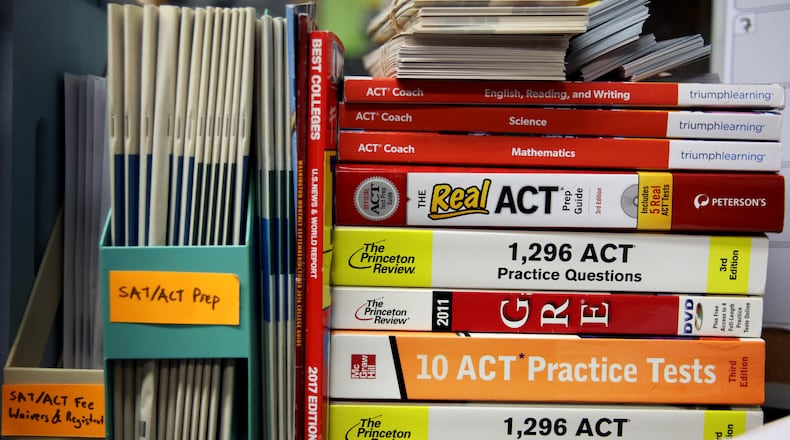The University System of Georgia approved a temporary waiver of ACT or SAT score requirements for admission at 23 of its 26 colleges and universities. The waiver doesn’t extend to Georgia College & State University, Georgia Tech and the University of Georgia.
The USG’s explanation for the test waiver is those 23 campuses are experiencing a higher number of incomplete applications. It did not address why this is happening. Students must still meet all other admission requirements at those 23 schools, including grade-point average eligibility.
“We have been trying to ferret out the story behind the story, but still do not have a good explanation for USG’s abrupt change in policy,” said Bob Schaeffer, executive director of FairTest: The National Center for Fair & Open Testing, which advocates for less reliance on standardized testing.
“My assumption is that applications were down at less-selective Georgia public institutions,” he said. “Waiving test scores can boost the number of students in the admissions pipeline and enrollments.”
National higher education data suggests a pandemic-era pattern of increased applications to highly selective institutions but a drop-off at less-selective ones, particularly for community colleges and regional university campuses in many states, said Schaeffer. It’s likely that when the National Association for College Admission Counseling publishes its May list of schools still accepting students, some of those 23 Georgia schools that waived test scores will be on it, he said.
Certainly, the disruptions to the normal high school experience by the pandemic played a role. As The Atlanta Journal-Constitution reported in November, fewer students enrolled this year at most Georgia public schools, reflective of the national declines two years into the pandemic. Undergraduate student enrollment nationally dipped by 3.2%, while the decline was 2.1% in the Georgia system.
Last year, high school administrators, students and teachers had to concentrate on navigating the pandemic, so the college application process may have fallen in priority. In addition, USG waived the SAT or ACT requirement last year, which meant students weren’t getting the usual reminders from the school and parents to sign up for tests.
As one teacher said: “So many of our students have been overwhelmed and have been trying to play college application catch-up, as many hadn’t taken either test at all leading into the application process this year.”
It’s also a numbers game. Over the last decade, campuses have experienced a downward trend in enrollment, which is expected to worsen with a declining birthrate.
In his 2018 book “Demographics and the Demand for Higher Education,” economist Nathan Grawe predicted the college-going population would drop by 15% between 2025 and 2029. His data showed a decline of about 10% in the enrollment pools for two-year and regional four-year colleges.
But elite colleges remain in demand. In a 2021 enrollment update, Grawe said the rising number of college-educated parents “suggests increasing interest in four-year colleges in general and selective ones in particular — a trend that offsets the downdraft of fertility decline but intensifies the weakness in demand for less-selective colleges.”
That is why Georgia Tech and UGA remain oversubscribed, while less-selective campuses have empty seats. Columbus State University already updated its admission page to say “applicants who have previously applied for fall 2022 admission will be re-evaluated according to this new temporary admissions criteria.”
On Wednesday, the California State University — the largest system of four-year higher education in the country with 477,000 students —announced it will drop SAT and ACT scores in its admission process, a decision likely to spur more debate about the relevance of these tests. Many colleges and systems made the tests optional during COVID-19. Some are considering staying with that policy, although USG has not publicly indicated support of a wholesale retreat from testing.
“For the students and the parents I’ve talked to, most are moving full steam ahead with testing. It’s been ingrained in them for so long that it’s just what you do,” said Allison Grandits, an independent counselor who helps high school students in Georgia and other states with their college searches.
Grandits said this year highly selective schools have become even more selective, so students aren’t getting into the places they thought they would.
“Some feel disappointed with their choices because they didn’t apply to a balanced list of schools, and now they feel a need to send in more applications,” she said. “I’m also seeing more of my seniors want to stay closer to home, and I believe the pandemic and the general unstableness of the world are contributing to that. I hope by removing the SAT, ACT requirements, more students can access these colleges.
“Now, if only the Board of Regents would make this permanent for all of Georgia’s public colleges.”
About the Author
The Latest
Featured



